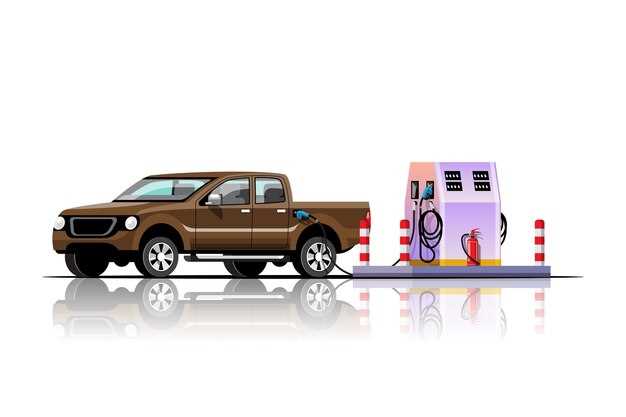
Diesel pickup trucks have carved out a significant niche in the automotive market, attracting both casual drivers and professionals alike. The appeal of these vehicles lies in their robust performance, fuel efficiency, and the ability to handle heavy loads. As industries such as construction and agriculture increasingly rely on dependable transportation, diesel trucks have become a popular choice for those seeking power and durability in their vehicles.
However, while diesel trucks come with numerous advantages, they are not without their drawbacks. Factors such as higher initial purchase prices, maintenance requirements, and environmental concerns pose significant considerations for potential buyers. Understanding both the benefits and drawbacks of diesel pickup trucks is crucial for anyone contemplating a purchase, as this helps in making an informed decision that aligns with personal needs and values.
In this article, we will delve deep into the intricacies of diesel pickup trucks, exploring their strengths, such as torque output and fuel economy, alongside challenges like emission regulations and operating costs. By examining both sides, readers will gain a comprehensive view of what owning a diesel pickup truck entails, helping them weigh their options effectively.
Fuel Efficiency: How Diesel Engines Compare to Gasoline

Diesel engines are renowned for their superior fuel efficiency when compared to gasoline engines. This efficiency stems from several key characteristics inherent to diesel technology. Diesel fuel contains more energy per gallon than gasoline, resulting in longer distances traveled on the same amount of fuel. On average, diesel pickups can achieve about 20-30% better fuel economy compared to their gasoline counterparts.
The combustion process in diesel engines is also more thermally efficient. Diesel engines operate at higher compression ratios, allowing them to extract more energy from the fuel. This efficiency translates into fewer stops at the pump, making diesel pickups an attractive option for long-distance travel or heavy-duty work.
Moreover, diesel engines tend to produce more torque than gasoline engines, facilitating better pulling power for heavy loads, which is essential for users needing a vehicle for towing or hauling. While gasoline engines may provide quicker acceleration, diesel engines maintain efficiency over extended periods, particularly under load.
However, it is essential to consider that initial costs for diesel pickups are typically higher, and while fuel efficiency may save money over time, other factors such as maintenance costs and fuel prices can influence overall ownership expenses. Additionally, diesel engines may have higher emissions of nitrogen oxides and particulates, which can impact environmental considerations.
In summary, diesel engines offer significant advantages in fuel efficiency over gasoline engines, making them a popular choice for those who prioritize mileage and torque. However, potential buyers should weigh these benefits against initial costs and environmental factors when deciding between diesel and gasoline pickups.
Maintenance Costs: What to Expect with Diesel Pickup Ownership

Owning a diesel pickup truck comes with specific maintenance costs that differ from gasoline vehicles. Understanding these expenses is crucial for potential owners to budget accurately.
One of the major factors influencing maintenance costs is the price of diesel fuel itself. Although diesel engines are generally more fuel-efficient, the cost per gallon can be higher than gasoline, leading to increased fuel expenses over time.
Additionally, diesel engines require more specialized care. Services such as oil changes use diesel-specific oil, which can be priced higher than conventional motor oil. Frequent oil changes are necessary due to the higher stress and higher temperatures diesel engines can experience.
Another significant aspect to consider is the maintenance of the fuel system. Diesel injectors and fuel pumps are designed to handle high pressures, and repairs or replacements can be costly. Regular servicing of the fuel filter is essential to ensure the longevity of these components, adding to the overall maintenance budget.
Diesel engines also often require additional emissions-related maintenance. For instance, vehicles equipped with diesel particulate filters (DPF) or selective catalytic reduction (SCR) systems may need specific upkeep. Neglecting these systems can result in costly repairs or even vehicle downtime.
Moreover, while diesel engines are known for their durability, any major repairs, such as those related to the turbocharger or transmission, can come with a steep price tag. Therefore, having an emergency fund for unexpected repairs is wise when owning a diesel pickup.
In summary, potential owners should anticipate higher maintenance costs associated with diesel pickups. These costs stem from specialized fuel, oil, and service requirements, as well as the potential for costly repairs if components fail. Adequate budgeting for these expenses is essential for a fulfilling ownership experience.
Towing Capacity: Evaluating Performance for Heavy Loads
Diesel pickup trucks are renowned for their superior towing capacity, making them a popular choice among those who need to transport heavy loads. One of the primary advantages of diesel engines lies in their torque output. Typically, diesel engines produce higher torque compared to gasoline engines, which translates to more pulling power, especially at lower RPMs. This characteristic enables diesel trucks to handle substantial trailers, boats, and other heavy equipment efficiently.
When evaluating towing capacity, it’s essential to consider specific metrics provided by manufacturers, such as the Gross Vehicle Weight Rating (GVWR) and the Gross Combination Weight Rating (GCWR). These ratings indicate the maximum weight the truck can safely tow and transport. For instance, many diesel pickups boast towing capacities surpassing 10,000 pounds, with some models capable of exceeding 30,000 pounds when equipped with proper towing packages.
Another factor influencing towing performance is the truck’s chassis and suspension design. Diesel pickups are often built with reinforced frames and enhanced suspension systems, allowing them to remain stable and maintain traction while towing heavy loads. Advanced technologies such as trailer sway control and integrated brake systems further enhance safety and handling during towing operations.
However, the high towing capacity of diesel trucks is not without its drawbacks. Increased weight and larger engines may lead to higher fuel consumption, particularly when towing heavy loads over long distances. Additionally, maintenance costs for diesel engines can be higher than for gasoline alternatives due to the complexity and necessary servicing of the engine components.
Ultimately, the decision to choose a diesel pickup for towing should be based on specific needs. For individuals or businesses that frequently transport heavy loads, the benefits of towing capacity and engine torque may outweigh the associated costs. Evaluating the intended use, expected load, and budget will help in determining the best option for towing performance.




